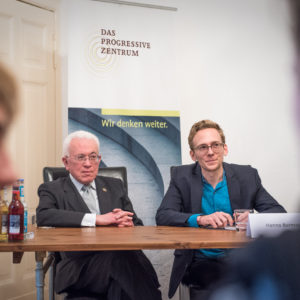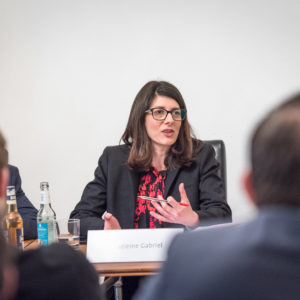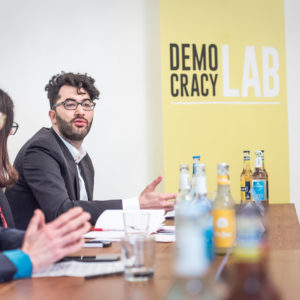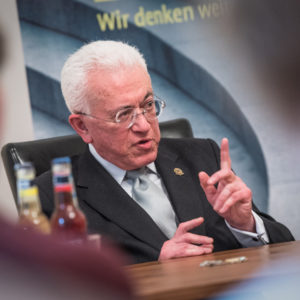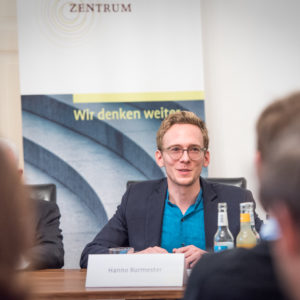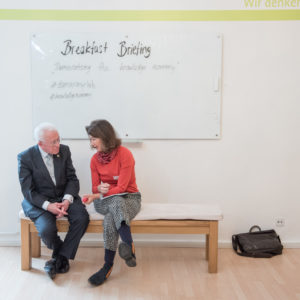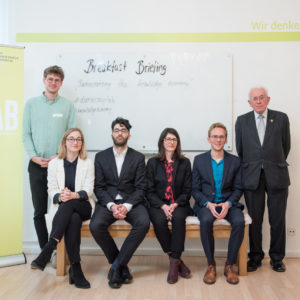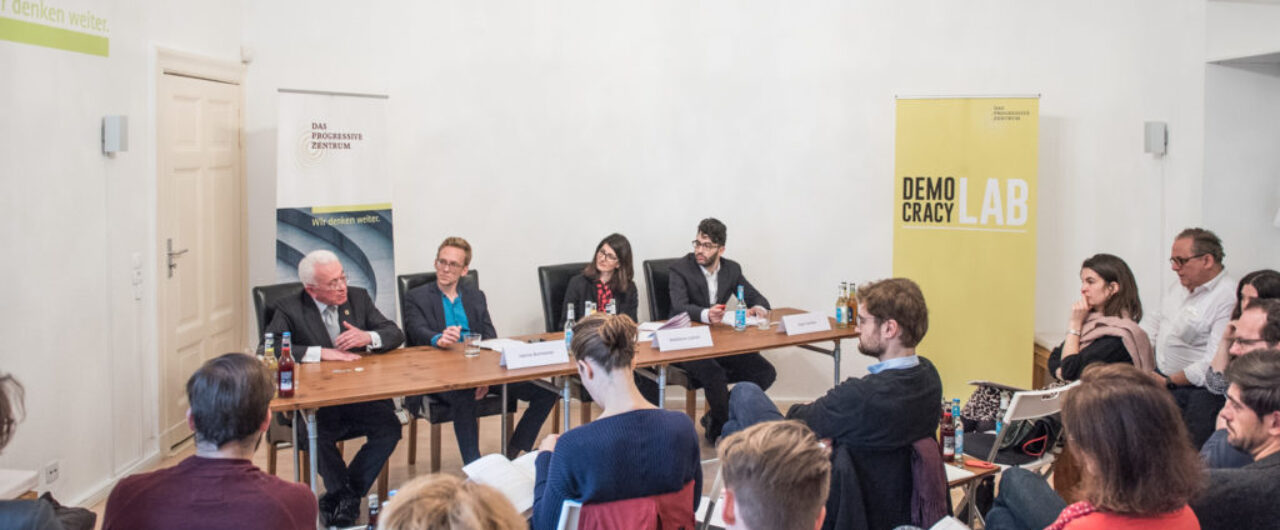On Friday, 22 March 2019, Harvard Professor Roberto Unger, as well as Madeleine Gabriel and Isaac Stanley from the London-based innovation foundation Nesta, presented their new study „Imagination Unleashed: Democratising the Knowledge Economy“ at the Democracy Lab. The authors propose to radically change our current economic structure in a way that allows for more people, places and firms to participate in the knowledge economy.
In 2018 Google, Amazon, Facebook, Apple and Microsoft – the dominant firms of the knowledge economy – were the five most valuable companies in the world. Across the globe, people use their products and services every day. In that way, the knowledge economy appears universal. But it is not. Rather, it is confined to a small number of people, places, and firms. This concentration of economic power, the authors argue, goes hand in hand with increasing inequality and stagnant productivity in developed nations across the globe. Faced with these challenges, governments respond either with the promise of the trickling down effect; or take protectionist matters in order to maintain jobs in industrial, mass manufacturing industries; or redistribute the gains of the knowledge economy to those who do not benefit from it directly.
An alternative approach of a radically democratised knowledge economy
In their presentation, chaired by Hanno Burmester, the Strategic Lead of the Democracy Lab, Professor Roberto Unger, Roscoe Pound Professor of Law at Harvard University, Madeleine Gabriel, Head of Inclusive Innovation at NESTA and Isaac Stanley, Researcher at NESTA, presented an alternative vision of a more inclusive knowledge economy. Instead of accepting the confinement of the knowledge economy as a given and resorting to one of the three responses, they propose to change the institutions underlying the current economic structures, so that more people, places and firms can take part in, and shape, the future knowledge economy. Three transformations need to be put in place to reach this goal:
- Democratise the knowledge economy by radically increasing, diversifying and decentralising access to productive opportunity as well as by transforming models of ownership.
- Establish a social inheritance by providing universal social security, e.g. in the form of a Universal Basic Income, and establishing an education system that focuses on the development of analytical and creative skills, allowing people not only to flourish within their societies and labour markets as they currently exist but to transform them for the better.
- Create a “hot” democracy by promoting experimental governments & an independent and empowered civil society.
These transformations, the authors argued, cannot take the same shape and form everywhere, but have to be developed at local, regional, national and transnational level through innovative experimental processes that take into account cultural, political and economic particularities.


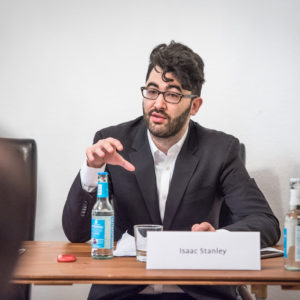
Structural change is always fragmentary
In their vision of a more inclusive knowledge economy, the authors reject the assumption that systemic change must be either revolutionary or reformist. Rather, structural change is almost always fragmentary and piecemeal. This process can neither be purely centralised nor exclusively local, but has to be developed in experimental pilot projects which if successful and applicable to other contexts must be scaled up.
„Progressives must not be content with the role of the humaniser of the economic status quo.“ Roberto Unger
Following the presentation, the audience, which was composed of people working in academia, civil society, political parties, government and the business sector, engaged in a lively discussion with the authors. Asked about the current state of the political left, Professor Roberto Unger urged progressives not to be content with the role of the humaniser of the economic status quo, but to develop a political project that does not abandon the shaping of the economic „supply side“ to conservatives. This is, for Unger, the precondition for individuals to take control over their own lives as makers, not just as consumers.
We thank Professor Roberto Unger as well as Madeleine Gabriel and Isaac Stanley from NESTA for their inspiring and thought-provoking insights.

Fotos by Luca Abbiento, 2019

